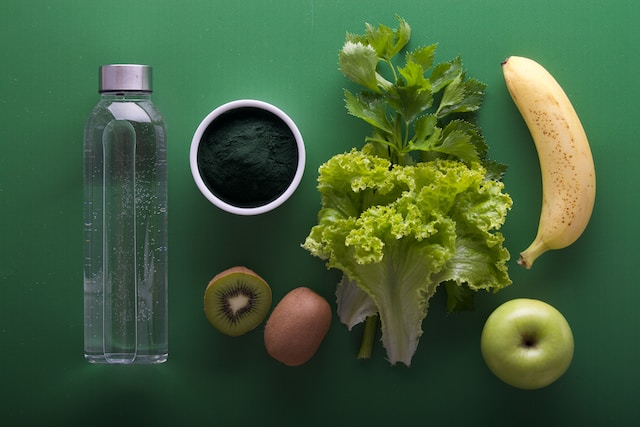Building a PCOS-friendly diet involves making strategic food choices that support hormone balance, manage insulin levels, reduce inflammation, and promote overall health. Here’s a comprehensive guide to help you create a diet plan for PCOS: Focus on whole, unprocessed foods: Base your diet on whole, unprocessed foods to maximize nutrient intake and minimize added sugars,
Building a PCOS-friendly diet involves making strategic food choices that support hormone balance, manage insulin levels, reduce inflammation, and promote overall health. Here’s a comprehensive guide to help you create a diet plan for PCOS:
- Focus on whole, unprocessed foods: Base your diet on whole, unprocessed foods to maximize nutrient intake and minimize added sugars, unhealthy fats, and artificial ingredients. Include plenty of fruits, vegetables, lean proteins, whole grains, nuts, and seeds.
- Choose complex carbohydrates: Opt for complex carbohydrates that have a low glycemic index (GI) to avoid spikes in blood sugar and insulin levels. Include foods like whole grains (oats, quinoa, whole wheat), legumes (lentils, chickpeas), and non-starchy vegetables (broccoli, leafy greens, cauliflower).
- Prioritize lean proteins: Incorporate lean sources of protein in your meals. They provide essential amino acids while being lower in saturated fat. Good choices include skinless poultry, fish (salmon, tuna), eggs, tofu, tempeh, and legumes.
- Include healthy fats: Choose healthy fats that support hormone production and reduce inflammation. Include sources like avocados, olive oil, nuts (almonds, walnuts), seeds (flaxseeds, chia seeds), and fatty fish (salmon, mackerel) rich in omega-3 fatty acids.
- Increase fiber intake: Fiber aids in digestion, helps regulate blood sugar levels, and promotes satiety. Include high-fiber foods such as whole grains, legumes, fruits, vegetables, nuts, and seeds in your diet.
- Consume adequate antioxidants: Antioxidants help reduce inflammation and oxidative stress. Include a variety of colorful fruits and vegetables such as berries, citrus fruits, leafy greens, bell peppers, and tomatoes.
- Opt for low-fat dairy or alternatives: Choose low-fat dairy products like Greek yogurt or skim milk. If you prefer non-dairy alternatives, opt for fortified options like almond milk, soy milk, or coconut milk.
- Incorporate anti-inflammatory foods: Include foods with anti-inflammatory properties to reduce inflammation associated with PCOS. Turmeric, ginger, green tea, fatty fish, and dark chocolate (in moderation) are good choices.
- Stay hydrated: Drink plenty of water throughout the day to support overall health and hormone balance. Water helps transport nutrients, aids digestion, and keeps you hydrated.
- Limit processed foods and added sugars: Minimize processed foods, sugary snacks, sodas, and foods with added sugars. These can contribute to inflammation, insulin resistance, and weight gain.
- Control portion sizes: Be mindful of portion sizes to avoid overeating and promote weight management. Use smaller plates and bowls, and listen to your body’s hunger and fullness cues.
- Consider meal planning: Plan your meals in advance to ensure you have balanced and nutritious options readily available. This can help you make healthier choices and prevent impulsive eating.
- Seek professional guidance: Consult with a registered dietitian or healthcare professional who specializes in PCOS to create a personalized diet plan tailored to your specific needs, preferences, and goals.
Remember, lifestyle factors like regular physical activity, stress management, and sufficient sleep are also important in managing PCOS symptoms. Taking a holistic approach to your health can have a positive impact on PCOS management.

















Leave a Comment
Your email address will not be published. Required fields are marked with *